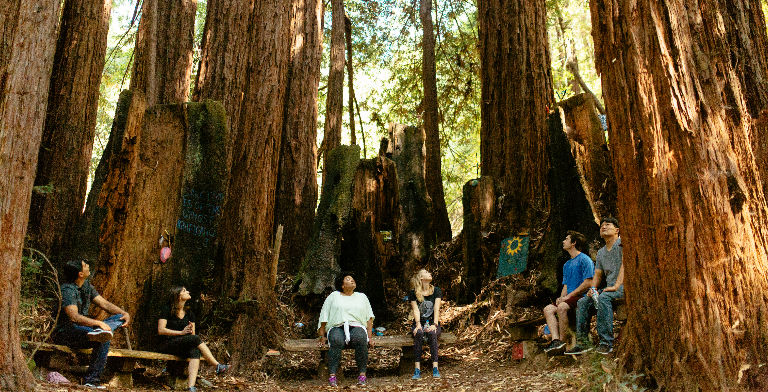About Marijuana Addiction
Learn More About Marijuana Addiction
Containing delta-9-tetrahydrocannabinol (THC) as its active ingredient, marijuana is a drug that causes feelings of relaxation and detachment from one’s surroundings when it is abused. Also known as pot or weed, the route of administration of this drug can range from smoking it, preparing food with it, or brewing it as a tea. And while many people will report that they feel there is no harm in using this substance, the truth of the matter is that marijuana can negatively impact a person’s life, especially when it is abused for a prolonged period of time.
Individuals who abuse marijuana long-term, along with those who abuse large quantities of this substance, often do not perform well in school or at work due to the learning, memory, and concentration impairments that can ensue. Furthermore, it is believed that abusing this drug can cause significant damage to an individual’s health and increase the chances for a person to have interaction with law enforcement and the legal system due to engaging in risky, criminal behaviors. Additionally, many mental health and addiction experts believe that the abuse of marijuana can lead to experimenting with and eventually abusing other illicit and dangerous substances that can lead to more severe consequences down the line.
Fortunately, however, there are treatment options in existence that can help people refrain from abusing marijuana. In seeking treatment, an individual can come to understand the impact of marijuana abuse and the reasons why the abuse began in the first place. Additionally, if a person who abuses marijuana is battling an untreated mental health condition, a treatment center that supplies treatment for substance abuse can also identify an existing mental illness and offer care for that affliction as well.
Statistics
Marijuana Addiction Statistics
Within the United States, marijuana is said to be one of the most abused substances in existence today. According to research, it is believed that almost 6,000 people experiment with marijuana for the first time each day and nearly 69 million people have used this drug at least once in their lifetime. Additionally, the Foundation for a Drug-Free World reports that adults who are 26 or older actually abused marijuana for the first time before they were 15 years old, and that these same individuals eventually went on to experiment with more illicit and dangerous substances later in life.
Causes & Risks
Causes and Risk Factors for Marijuana Addiction
While there are many theories that explain why and how a person comes to abuse marijuana, experts believe that, aside from certain risk factors, an individual’s genetics and environment can play integral roles in determining whether or not this substance will be abused. Consider the following:
Genetic: Conclusive research has found that a person’s genes can make him or her more susceptible to abusing substances, such as marijuana. Studies that examined the prevalence of substance abuse and addiction among family members, along with research that analyzed specific clusters of genes believed to make an individual more vulnerable to substance abuse, showed that a certain people are more likely to abuse substances based on a genetic history of substance abuse and addiction.
Environmental: The environment in which a person was raised or currently spends most of his or her time can greatly impact whether or not marijuana will be abused. For example, if a person is exposed to this type of substance abuse and is easily able to acquire marijuana, there is a high likelihood that that individual will experiment with and abuse this drug. This risk increases exponentially should a person suffer from a mental health condition at the same time. Certain symptoms of mental health conditions, when left untreated, can compromise a person’s ability to make good decisions or appropriately cope with stress. When this is the case, substances, such as marijuana, are likely to be abused as a means of coping with stress or emotional turmoil.
Risk Factors:
- Exposure to the abuse of marijuana
- Being able to easily acquire marijuana
- Lacking appropriate coping skills
- Having a history of trauma
- Family history of substance abuse and/or addiction
- Family history of mental illness
- Personal history of mental illness
- Peer pressure
Signs & Symptoms
Signs and Symptoms of Marijuana Addiction
Depending on the amount of marijuana that is abused, as well as the longevity of this type of substance abuse, the apparentness of signs that infer a person is abusing marijuana may or may not be obvious. In order to decipher whether or not an individual is abusing marijuana, it is a good idea to take note of any of the following behavioral, physical, cognitive, and psychosocial symptoms:
Behavioral symptoms:
- Possessing drug paraphernalia
- Eating an excessive amount of food
- Engaging in risky behaviors
- Procrastination
- Laughing for seemingly no reason
- No longer participating in activities that were once enjoyed
- Change in peer group
- Isolation from friends and loved ones
- Instigating conflict with others
- Omitting or lying
- Stealing
- Missing work or school
- Poor academic or occupational performance
Physical symptoms:
- Drowsiness
- Dry mouth
- Bloodshot eyes
- Glassy eyes
- Poor hygiene
- Increase in one’s appetite
- Weight gain
- Coughing
- Decreased energy
Cognitive symptoms:
- Paranoia
- Lack of coordination
- Difficulty learning new information
- Cognitive impairment
- Short and long-term memory problems
- Hallucinations
- Delusions
- Experiencing altered states of perception
- Poor concentration
- Poor decision-making abilities
Psychosocial symptoms:
- Feelings of depression
- Increased anxiousness
- Irritability
- Increased agitation
- Feelings of panic
- Declined interest in things that were once deemed pleasurable
Effects
Effects of Marijuana Addiction
Continuing to abuse marijuana without seeking treatment can cause a person to be more vulnerable to a number of effects that could be irreversible. By engaging in treatment, a person will be able to significantly reduce the potential for the following effects or avoid them all together:
- Development of certain types of cancer
- Development of an additional substance use disorder
- Reduced academic or occupational productivity
- Potential job loss
- Academic failure
- Relationship problems
- Interaction with the legal system
- Tachycardia
- Hindered learning capabilities
- Irreversible cognitive impairment
- Development of a mental health condition or conditions
- Weakened immune system
- Development of upper respiratory problems
Co-Occurring Disorders
Marijuana Abuse & Co-Occurring Disorders
Those who abuse marijuana are often plagued by the symptoms of certain mental health conditions. Whether an individual experiences symptoms synonymous with a mental illness as a result of abusing this drug or is battling a disorder prior to the abuse of marijuana, it is quite common for marijuana abusers to meet diagnostic criteria for a mental health condition or conditions. In fact, individuals who regularly abuse marijuana often do so as a means of coping with untreated mental illness symptoms. The listed disorders are those that abusers of marijuana are frequently grappling with:
- Antisocial personality disorder
- Obsessive-compulsive personality disorder
- Anxiety disorders
- Depressive disorders
- Bipolar disorder
- Posttraumatic stress disorder
- Paranoid personality disorder
- Additional substance use disorders
- Attention-deficit/hyperactivity disorder
Withdrawal
Effects of Marijuana Withdrawal & Overdose
Regular abuse of marijuana will cause a person to experience a number of effects in the event he or she stops using this substance. The following are among the symptoms and effects that can occur should a person refrain from abusing marijuana:
- Irresistible cravings for marijuana
- Onset of symptoms similar to those related to depression
- Agitation
- Irritability
- Angry outbursts
- Disrupted sleep patterns
- Dizziness
- Feeling uneasy or shaky
- Impotence
- Poor concentration
















